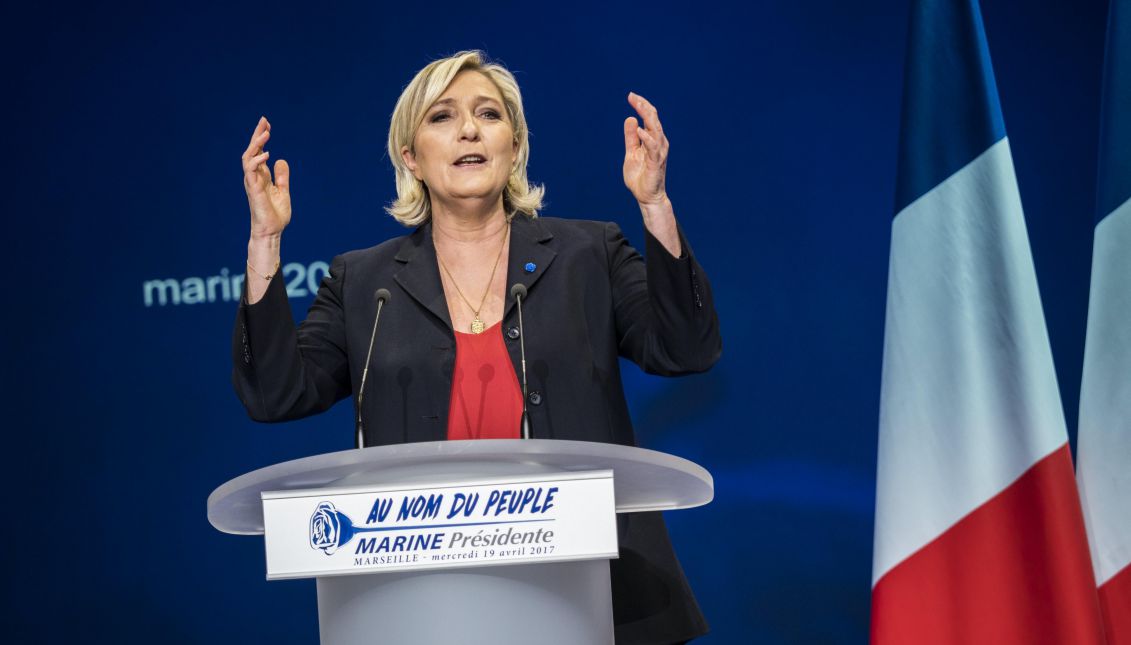
Can Feminism and the Far Right Meet?
On Sunday, Marine Le Pen, the candidate of the far-right National Front (FN), is projected to become the second woman in French history to advance to the second round of a presidential election. Recent polls indicate that she will probably win the first run, but she will lose in the second runoff in May. However, she will make a record as a female in her way to become a head of state in France.
Feminist and social activists have strongly criticized Marine Le Pen for she represents the Far Right and anti-immigration values. Still, Le Pen hs benefited from her gender in a country whose political history, much like that of other western democracies, doesn’t boast much female representation:
French women were only afforded the right to vote and serve in public office in 1944, decades after women in Britain (1918), Germany (1918), and the United States (1920). Édith Cresson became the country’s first and only female prime minister in 1991 under President François Mitterrand, but lost the post less than a year later due to low approval ratings that some attribute to the misogynist attitudes of Socialist-party elites. Ségolène Royal, a Socialist politician who in 2007 became the first woman to be nominated for the presidency by a major party, faced similar discrimination, as reported in The Atlantic.
CONTENIDO RELACIONADO
Marine Le Pen's main rival on Sunday is Emmanuel Macron, the centrist candidate. Mr. Macron, a onetime investment banker and former economy minister, seeks to trim some social benefits with an eye toward making France more business-friendly. He has embraced the European Union, and has preached tolerance toward immigrants and Muslims.
But his gamble on running on a post-partisan platform might backfire in a very tight race — as much as 30 percent of the electorate is still undecided.










DEJE UN COMENTARIO:
¡Únete a la discusión! Deja un comentario.